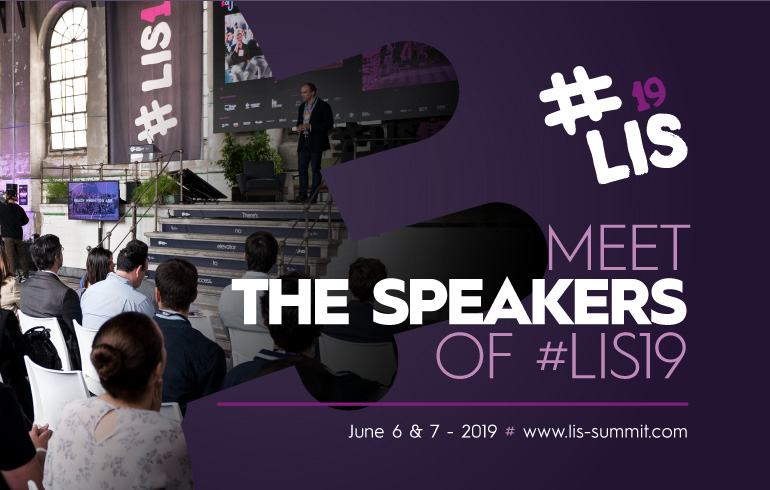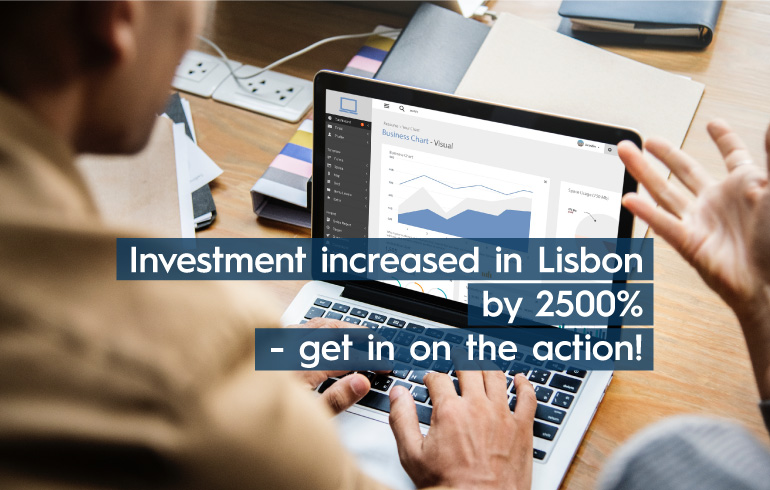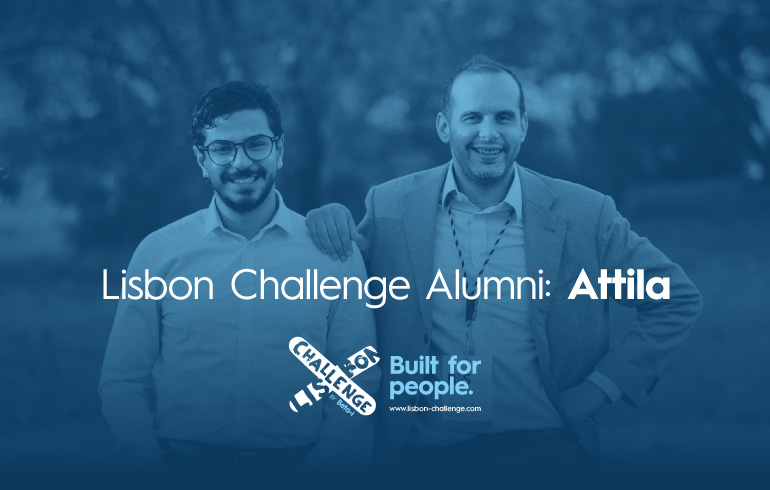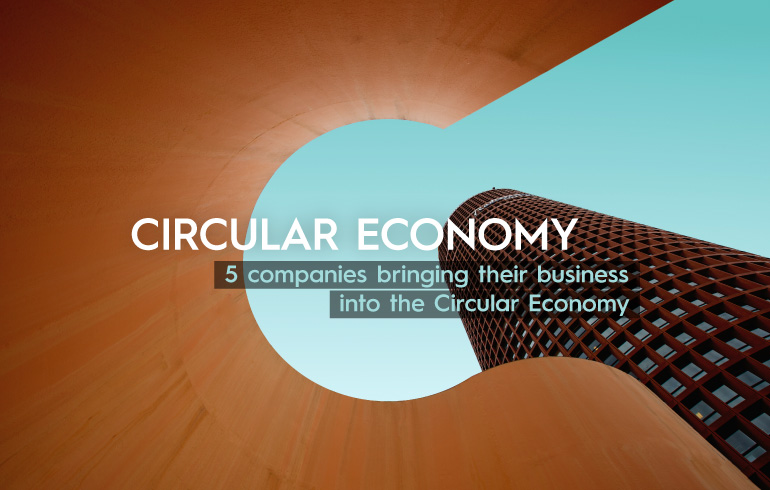
by silvia | Mar 4, 2019 | Corporates, Investors, Startups, Uncategorized
We’re getting excited about Lisbon Investment Summit and the awesome people we’re bringing to speak, inspire and connect on the 6th and 7th of June.
We’re proud to welcome some top investors and speakers to our event, so here’s a little peek at some of the confirmed speakers.
Katz Kiely

Katz is an award-winning serial entrepreneur and pioneer. She built the first open-innovation platform for HP, re-architected the way a UN agency does business and designed a behavior change platform with Intel that connected mobiles, big screens and data.
Currently: She is the founder and CEO of beep: the Behavioural Enterprise Empowerment Platform. beep is an enterprise-level, decentralized, AI software that empowers employees to innovate for efficiency, effectiveness and productivity.
Itxaso del Palacio

Itxaso del Palacio is the current Investment Director at Notion.
Previously, as the VP of Capital at Lepe Partners, she was responsible for building the portfolio of Lepe Capital, through the due diligence to execute the investments and working with the companies in the portfolio. Before Lepe, Itxaso worked as an early stage investor at EC1 Capital, responsible for deal flow across sectors. For the past ten years, Itxaso has worked with startups in London, Silicon Valley, Spain and Latin America.
Past Investments: Unbabel, Onfido, Leaf.fm, Evermore Health, Trouva, BridgeU
Sean Seton-Rogers

Sean is a partner and co-founder of PROfounders Capital, an early-stage venture capital fund located in London that invests in and support digital companies. Over a decade of venture capital experience, including stints at with Benchmark Capital Europe and Commonwealth Capital Ventures.
Past Investments: Tweetdeck, OneFineStay, LeapMotion
Board of Advisors: wundertax, NDGIT GmbH – Next Digital Banking
Ricardo Sequerra

Ricardo is the principal at Cherry Ventures.
Previously, he spent several years gaining experience as an operator as well as working closely with founders in the roles he held at Faber Ventures, Seedrs and Seedcamp. Ricardo is especially passionate about businesses building competitive advantages through data and addictive products able to change people’s habits.
Cherry Ventures’ Investments: Auto1 Group, Lesara, Quandoo, Flixbus, Amorelie, Tourradar, Move24 and Joblift
Tobias Schirmer

Tobias is a managing partner at Join Capital.
With previous experience in venture capital, entrepreneurship and financial markets, he believes his entrepreneurial drive, team spirit and empathy have helped him to achieve his professional goals. Specialties: Venture Capital, Corporate Venture Capital, Entrepreneurship, Startups, Enterprise Software, SAAS, Industry 4.0
Join Capital’s Investments: German Bionic, Prodsmart, Proxyclick, Codacy
Member of the Board: Proxyclick, Prodsmart, German Bionic
These are just some of the kick-ass venture capital speakers we’ll have on stage at #LIS19. Investor Full Access and Investor Ultimate early-bird tickets are already sold out, so hurry up and don’t miss out – get your tickets for #LIS19.

by silvia | Mar 4, 2019 | Corporates, Startups, Uncategorized
Free Electrons, the Global Energy Startup Accelerator closed applications and attracted close to 500 startups, with 90% new entries.
Applications for Free Electrons 2019, the first global energy startup accelerator program that connects the world’s brightest startups in the Energy scene with leading utility companies, just closed. In total, the program received 481 applications, from 62 different countries, a ‘spread’ that talks volumes about the international reach of the program.
The program only had a 10% repeat rate, and that means 90% of the startups we attracted are new entries, and that talks to the global visibility of the program, and its growing appeal. This was also possible because we have a larger network, with 2 new partners helping drive quality applications.
If we look at the categories of the applications, 18% are dedicated to Energy Management, 14% are focused on IoT & Digitization, 14% are looking into Energy Generation, and 9% are from the Smart Grids field.
The United States, with a total of 64 startups, Germany, with 30, and the United Kingdom, with 25, are the biggest contributors, but countries like Spain (24), Portugal (21), Brazil (20), or India (19) have also a strong representation.
Goals
Digital transformation is taking over a large spectrum of industries, with the integration of digital technology into all areas of business, fundamentally changing how companies operate and deliver value to customers. Free Electrons was built to tap into that potential, but also to promote a cultural change that requires organizations to continually challenge the status quo, to question existing business models, and to get comfortable with very novel approaches.
Entering its third edition, the program received over 1.400 applications, from 70 different countries. Startups chosen for Free Electrons get exposure to US, Europe, and Asian markets through three separate week-long ‘customer adoption’ modules in USA, Asia and Europe. Each module is structured to facilitate ongoing conversations between startups and utilities to seed pilot projects, investments and other commercial relationships. Besides opportunities for strategic investments from utilities, startups also get plugged into global investor networks.
“We couldn’t be happier with the applications process, especially since we only got a 10% repeat rate, which means Free Electrons was able to attract a whole new set of energy startups, and that is refreshing. We believe that this is critical, as we are looking for innovative solutions, that can be adopted and integrated into our companies, and by tapping into new sources we are in fact growing the potential of the program”, says Luís Manuel, Executive Board Member at EDP Innovation.
What’s next
Three international modules held across the globe are the cornerstone of Free Electrons. During the course of the program, participants will work closely with local players, utilities, mentors and other resources in order to accelerate their company’s growth.
After this first screening stage, a one-week Bootcamp will be held in Dublin (Ireland) from 2nd to 4th. Then the 1st Module will take place, in Columbus, Ohio (EUA), from May 21st to 24th. The 2nd Module will be happening from June 25th to 28th, in Hong Kong (China), with the final stage moving to Lisbon (Portugal), in September, for 3 days, starting on the 16th.

by silvia | Mar 1, 2019 | Corporates, Investors, Startups, Uncategorized
It has been noted lately that even though founders do not decide where they base their company on investment flows, but that investment flows adapt to the popularity of cities chosen by founders – and it’s already showing in the city of Lisbon.
According to data from Dealroom and Startup HeatMap, Lisbon has seen an increase in investment in 2018 of > 2500% comparing to the previous year. It’s an unprecedented growth, that makes Lisbon jump 17 ranks on the European Startup HeatMap, currently ranking 5th.

According to data, the sum of investments in Lisbon was €358M, the most noteworthy companies invested being OutSystems, Unbabel, Prodsmart, Undandy and Valispace, with a percentage of 60% of foreign investors.
Impressed yet? Get in on this action: join us at Lisbon Investment Summit, a slightly unexpected startup conference gathering the most promising startups, innovators and seasoned investors in Lisbon on the 6th and 7th of June.
Investor Full Access and Investor Ultimate early-bird tickets are already sold out, so hurry up and don’t miss out – get your tickets for #LIS19.

by silvia | Feb 28, 2019 | Corporates, Investors, Startups, Uncategorized
Present since its early stage in the USA and Europe, Attila’s co-founders traveled to Lisbon to join the fall edition 2018 of Lisbon Challenge. With a product directed at commercial banks, they made their way through Lisbon Challenge and are trying to conquer the Portuguese market.
What is your product?
Attila is an AI-based Virtual Financial Advisor able to engage retail banks’ customers in meaningful and automated financial conversations with a deep focus on customer understanding.
What made you apply to Lisbon Challenge?
The Portugal banking industry is a favorable market for Attila due to the strategic orientation of the Portuguese banks. Today they are focused, more than ever before, on improving their customer experience and customer journey’s to ensure their survival in the digital era. Lisbon Challenge represented a perfect soft landing opportunity for us in this unique and growing market.
Why is Portugal an attractive market for Attila?
Right now, is a good moment for us because the Portuguese banks are willing to do a leapfrog in their digital processes and that’s what Attila stands for: enabling banks to quickly catch up tech companies in terms of UX thanks to Machine Learning. There’s also a growing and dynamic tech ecosystem we can learn from and build partnerships with.
What are Attila’s goals for the Portuguese market?
Our main objective is to build successful case studies by finetuning our product to the needs of south European market. This represents a gateway and solid reference for the European market as a whole and the markets across the Atlantic.
What was the biggest win for Attila in the programme?
Having the opportunity to meet customers allowed us to reach a higher level of validation, adjust our value proposition and generate a pipeline of leads including top Portuguese and international Banks.
In which way Lisbon Challenge’s team helped you the best?
Lisbon Challenge’s team gave us honest and straightforward feedback that helped us challenge our ideas and plans.
What have been your biggest accomplishments since Lisbon Challenge?
Unlocking a project with one of the largest banks in Portugal – we’re very excited about it!
What is your advice for startups trying to make it in Lisbon?
Don’t hesitate to directly knock on the relevant doors, whether it be customers, partners, or investors, you will absolutely find people willing to listen and open to new ideas. Do not wait for some miracle to happen.

by silvia | Feb 27, 2019 | Corporates, Investors, Startups, Uncategorized
The circular economy is here to stay! It represents both a solution to the environmental problems faced by our planet and an opportunity for business: the estimates say that $1.8 trillion is the worth of wealth that could be created by unleashing circularity.
This mega-trend is already pushing businesses to change and innovate – to respond to a consumer that demands it, to improve their Corporate Social Responsibility, and to create circular flows within their own business that allows them to reduce costs, improve efficiency and create new business opportunities.
Here’s a look at 5 companies who are integrating the circular economy into their business or building the path that allows for this new type of economy.
Desintegra.me
This is a project created by Chilean designer Margarita Talep. Tired of all the one-use, non-recyclable packages, she decided to create her own packages. She has created a sustainable, biodegradable alternative, using raw material extracted from algae.
According to the designer, the material only includes natural matter, including the dyes, used to color it, which are extracted from the skins of fruits and vegetable (like blueberries, purple cabbage, beetroot, and carrots), and the material biodegrades in between 2 (in summertime) and 3 months (in winter time).
The bioplastic is best for dry foods, and there are already prototypes for different types of packages: cellophane paper, bubble wrap, spoons, cookie packs, and straws. Even though they are not being mass-produced yet, Margarita believes that “bio-fabrication will be an important part of future industries,” said Talep. “As long as all the processes of extracting these raw materials and their manufacture are done with environmental awareness.”
Recreate Design Company
Recreate Design Company gives companies the option to be 100% sustainable when designing their new spaces.
They create bespoke spaces for both private homes and companies made from sustainable sources: by salvaging old furniture and materials that are then re-designed or re-used by the company to create unique spaces for clients.
They also have a programme to help companies moving to new offices to get rid of the surplus of unwanted furniture. They match the companies with non-profits and local schools who need the furniture so that it can be donated and its lifespan prolonged effectively.
IKEA
Ikea is leading the way in terms of big corporations switching to a more sustainable business, making a huge commitment to become circular and climate neutral by 2030.
They are committed to consume 100% renewable energy by 2020 and also expand their offer of home solar solutions to consumers in 29 different markets.
They have integrated successfully into their products a circular mindset – designing to be recyclable and procuring recycled materials to produce their products – they already have products 100% recycled. This in an impactful measure due to Ikea’s scale – they consume around 1% of the world’s wood supply.
They are also changing their business to fit this mindset – they are now considering selling different spare parts of furniture, experimenting with allowing costumers to bring their used products to be re-homed or recycled in exchange for a voucher, and experimenting with a new business model by renting furniture.
ADIDAS
Adidas partnered up with Parley for the Oceans (a non-profit organization) to reduce the number of plastic in the oceans. They produced a sneaker model completely made out of yarn recycled from ocean waste and illegal deep-sea gill nets.
The model was a success – it’s said that each pair of shoes uses the equivalent of 11 plastic bottles, which means that Adidas has recycled some 55 million plastic bottles this year.
The company now hopes to have 100% recycled materials in its products by 2020.
Salvatore Ferragamo
The circularity mega-trend is impacting both mainstream brands and premium brands. This is particularly true in the fashion industry who is accused of representing a big part of the waste produced (mainly due to fast fashion trends). To contradict this trend, brands are opting for organic and sustainable options. Salvatore Ferragamo created a capsule collection made out of orange fiber fabric – a fabric created with what remains after squeezing citrus fruits for juice – because there are more than 700,000 tons of by-product in Italy only.
Get more information on Circular Economy and keep up with our updates: subscribe to our newsletter.











